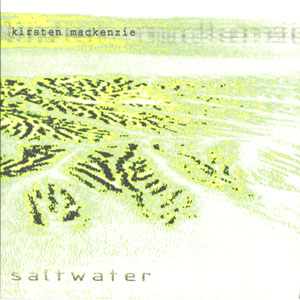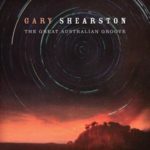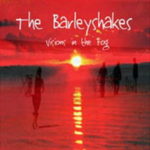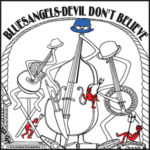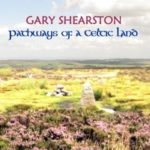Description
CD review by John Hamilton
Kirsten Mackenzie is a singer, songwriter and vocal teacher, based in Bellingen.
She studied at Queensland Conservatorium of Music and is interested in an eclectic range of vocal genres, from folk and world music to gospel, classical and musical theatre.
She has performed with a variety of ensembles, including Arramaida, who headlined Australian festivals in the 1990s.
The latter band are credited with influencing Australia’s a-capella scene.
Since her output involves vocal innovation rather than a genre boundary, she has recorded songs by different artists, from Cesaria Evora in Portuguese, to Joni Mitchell.
Her voice is clear and evocative, a sort of cross between Joni Mitchell and Jeannie Lewis, to me, anyway.
There is also a lot of vocal collaboration across the collection.
Saltwater was featured on a Radio National breakfast program.
The opening track, Hugo, begins with a marimba, which weaves through much of this collection.
Indeed, a link on her profile page shows a clip from a Zimbabwe marimba challenge.
The song demonstrates the expansiveness of her reach, musically and thematically.
It contains the lyrics, “I am a brother, I can hold you in my heart”, “You surround me”.
There is a sense of embracing and being part of the world around her, both the natural one and other humans and their journeys and plights.
Some of the songs seem grounded in the surrounding landscape, including birdcalls.
Divorced is an emotional ballad, sung against a backdrop of several counter melody vocals.
Many of the songs layer vocals to create a kind of writhing dance.
They often seem like anthems.
In Divorced, she includes didgeridoo, bird calls and even a reference to Jesus.
The song conveys intense heartbreak, grief and a search: “I’ve been divorced for too long, I need somewhere to call my home”.
Freedom & Tama Oma add African rhythms, percussion and vocals to the marimba.
They celebrate and call to action: “Life can be a beautiful thing”.
Freedom, a plea, may remind you of some of the harmonic collaboration on Paul Simon’s Graceland.
Butcher Bird lives up to its name, using lyric-free vocals to emulate the songbird.
It’s playful.
Sehani Yangudy starts with one voice and progressively adds three more, all singing rounds.
The effect is compelling, as if it is being sung by a choir sitting around a campfire.
There’s even a bit of laughing and dialogue at the conclusion.
There are four pieces with more traditional folk song form, Moan Brother, Million Miles and Claypan.
Moan Brother starts with the sound of a horse-drawn wagon, before the voices enter.
It’s a lament: “Moan, brother, moan, … Will you find your way home?”
Million Miles has upbeat instrumentation and lyrics: “I’m getting on with my life … I’m catching glimpses of your life”.
Moala, the closing track, is probably the name of a person, although it could be a Fijian Island or a Hawaiian beetle, or all of the above.
In any case, it’s a soft lullaby, with a quiet reassurance.
The singer is watching and soothing: “I showed you the moon”.
Perhaps the simplest song on the album is Claypan.
It evokes a strong sense of place – the desert, Central Australia:
“Touch the sky…Shadows gather and retreat;
“I stare into the coals;
“All is watching, all is waiting, all is listening, all is breathing;
“And the wind sighs away over the claypan;
“We’ll watch a million stars swing across the sky”
The song is my favourite on the collection.
It has a sense of timelessness, something which I suspect draws Kirsten Mackenzie and which she would like to infect us with.
The accompaniment is gentle acoustic guitar and haunting harmonica.
She makes a compelling case to join her dances and to “Dance with me on the claypan”.
